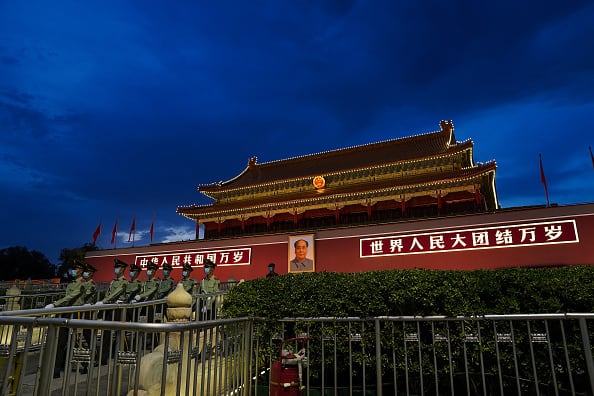The Beijing Municipal Civil Affairs Bureau has shut down a blockchain research center whose board members include the founders of prominent Chinese cryptocurrency exchanges.
The China Blockchain Application Center was founded in November 2015 in Beijing under the auspices of the China Museum of Finance and with the involvement of high-profile blockchain industry leaders, according to the introduction page of its 2019 China Blockchain Report.
According to an official announcement, the China Blockchain Application Center, alongside a local chamber of commerce and an education organization, was shut down because it “disrupted the management order of social organizations.”
The announcement said that the center had not registered as a social organization despite the fact that it conducted activities typically carried out by such organizations.
Forkast.News attempted several times to contact the China Blockchain Application Center for comment, but all calls went unanswered.
Zhaosheng Jiang, director of the Blockchain Research Center at 01 Finance, a Beijing-based fintech think tank, said the closure of the center had been highly selective and would not affect the government’s broader approach to blockchain technology.
“This time, [Beijing officials] shut down a blockchain-related association — they did not intend to target blockchain as a whole,” he said.
The China Blockchain Application Center grew rapidly since its establishment, setting up 10 branches in China and elsewhere within three years and boasting offices in Hong Kong and New York. In 2018, it joined the China Mergers & Acquisitions Association.
Its executive directors included leading figures in China’s crypto community, including the founder of cryptocurrency exchange OKEx, Mingxing Xu — also known as Star Xu — and Lin Li, founder of Huobi Group.
The center published annual reports on China’s blockchain industry and held blockchain seminars for members of the All China Federation of Industry & Commerce and other bodies. At press time, videos dating from January 2019 to April 2020 could no longer be found on its website, despite having been featured on the site earlier.
It was also featured by Xinhua net, the online portal of China’s official state news agency, with the center’s then-chairman Di Deng saying that “educating the public and letting society understand blockchain technology and blockchain applications” were among its responsibilities.
The closure of the China Blockchain Application Center comes as China continues to crack down on the cryptocurrency industry through measures that range from bans on crypto mining to the blocking of crypto exchanges’ social media accounts.
Yet the development of blockchain technology has been made a national economic priority, even being written into the country’s 14th five-year plan.
China watchers have said the shuttering of the research center might be a warning to companies in the blockchain industry that Beijing was intent on retaining tight control of the sector.
“This time it was in Beijing, and similar actions may follow in other areas,” Jiang said. “‘Adjustments’ mainly include banning illegal social organizations, and they may adjust the names and scope of activities in the future.”
Ningwei Qin contributed to this report.

